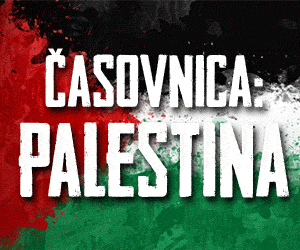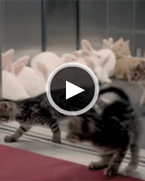thx
AFRIKAANS – dankie
ALBANIAN – faleminderit
ARABIC – shukran
A
"If a fellow isn't thankful for what he's got, he isn't likely to be thankful for what he's going to get."
Konrad von Gesner
"Best of all is it to preserve everything in a pure, still heart, and let there be for every pulse a thanksgiving, and for every breath a song."
Gerald Good
As we express our gratitude, we must never forget that the highest appreciation is not to utter words, but to live by them. John F. Kennedy1
In 2014, Kevin Durant, an American basketball player, was named Most Valuable Player. When he received his award, he delivered a memorable acceptance speech. Durant thanked his teammates and friends—nothing out of the norm there—but then he spoke directly to his mother.2
—Blair Thomas, EMerchantBroker
8. Ask for feedback and act on it.
I believe employees feel appreciated when I ask them for feedback and actually act on it. We send a weekly net promoter score survey to our entire team, and I read it every week. Then, I act on the recurring comments. It can be as simple as getting a better coffee machine, which we did last month. I was amazed how much of a celebration that caused!
—Chris Goward, WiderFunnel
9. Add gratitude to your daily routine.
When things move really quickly it’s easy to forget to thank the people you work with every day. That’s why we created a daily routine to express our gratitude. We set 15 minutes aside to discuss what we’re working on and what our core values are. We share examples of how our colleagues displayed these core values, and we acknowledge those who put them into action.
—Stephen Gill, Tiller
“I don’t think you know what you did,” Durant told her from the podium. His eyes welled with tears. “The odds were stacked against us: single parent with two boys by the time you were twenty-one years old. Everyone told us we weren’t supposed to be here. We moved from apartment to apartment by ourselves.”
Durant went on to recognize his mother’s contributions to his own success. He took an incredible opportunity to thank her in a very public way.
CANTONESE – M̀h’gōi
CROATIAN – hvala (HVAH-lah)
CZECH – děkuji (Dyekooyih)
DANISH – tak (tahg)
Like Durant, you may want to give thanks for people, circumstances, and things in your life. And though you may not have a podium from which to do so, the expression of your gratitude can be just as powerful.
Intentional thankfulness can make quite the difference in our perception of the world around us. Let’s take a look at three elements of implementing a lifestyle of thanksgiving.
3. Boost work-life benefits.
You should always thank your employees for their hard work. However, actions are always better than words, so make it as easy as possible for them to maintain a good work-life balance. Empower them to do what they need to in and out of the office. Offer flexible work schedules, generous paid time off and up-to-date tools to keep communication easy and open.
—Zach Robbins, Leadnomics
4. Hold Friday lunches.
It sounds basic, but it’s gone a long way for our culture. We order lunch every Friday for our company. We all stop working, get together in the break room and banter back and forth while eating lunch. It has been a great way to get to know each other and build great relationships.
—Brandon Stapper, 858 Graphics
10. Keep it simple and meaningful.
It’s the little things that mean the most. Nothing beats looking someone in the eye and expressing heartfelt gratitude. I also use handwritten thank-you notes liberally. In addition, we also use a custom, in-house platform powered by WeVue for continuous feedback and communication. It helps the whole team share feedback and recognition with each other daily.
—Chris Cancialosi, gothamCulture
INWARD ATTITUDE: HUMILITY
As with so many things, we must begin within. The first step is the development of an inward attitude of humility, which centers on the realization that we’re not more important than anyone else. Consequently, we do not innately deserve more than anyone else. In fact, a humble person rejects altogether a mentality of “I deserve this.”
Humility leaves no room for thoughts of entitlement or privilege. Adopting a humble mind-set shifts our approach to life from demands and expectations to acceptance and satisfaction. With this transition comes a greater appreciation for life and a more natural inclination toward thankfulness.
RMENIAN – Շնորհակալություն / chnorakaloutioun
BOSNIAN – hvala (HVAH-lah)
BULGARIAN – благодаря / blagodaria
CATALAN – gràcies (GRAH-syuhs)
DUTCH – dank u
MALTESE – grazzi (GRUTS-ee)
MANDARIN – Xièxiè
TAMIL – nandri
THAI – kop khun
TURKISH – teşekkür ederim (teh shek uer eh der eem)
UKRAINIAN – Дякую (DYAH-koo-yoo)
WELSH – diolch (DEE-ol’ch)
YIDDISH – a dank
ZULU – ngiyabongaThrough humility, gratitude, and remembrance, we can truly learn how to give thanks.Christians believe the Bible contains God’s foundational teachings on a variety of topics—thanksgiving included. Ephesians 5:19–20 explains when and for what to give thanks: “Sing and make music from your heart to the Lord, always giving thanks to God the Father for everything, in the name of our Lord Jesus Christ.”
Like Durant, people with an attitude of humility see the undeserved beauty in life. This kind of mind-set helps one find the good even in tough situations. In fact, in the absence of entitlement, a difficulty can be simply accepted and dealt with as a reality. French novelist Alphonse Karr wrote, “Some people grumble that roses have thorns. I am grateful that thorns have roses.”3
For example, perhaps as you develop this mind-set you stop complaining about other cars in traffic and instead notice a pink sunset in the distance. A painful break-up may provide insight into the ways you can love more intentionally. A stressful work project becomes a reminder that others have faith in you to get the job done. Your home, vehicle, and meals—fancy or simple, new or old—are now all seen and respected as precious gifts.
In every circumstance, humble people ask, “For what can I be thankful?”
OUTWARD EXPRESSION: GRATITUDE
This attitude of humility naturally leads to a spirit of gratitude. People who become aware of kindness and goodness around them often begin to wonder, How can I repay these undeserved gifts?
1. Express gratitude when they don’t expect it.
When something is expected, it’s hardly valued. And a general “thank you” seems less sincere than recognition for specific action. So, I’ll randomly send an email note to a team member that just says: “Thanks for a specific past action, so glad you’re here and what can I do to make your life better?” I ask this last question so they know that I support them and will go out of my way to help.
—Alan Carniol, Interview Success Formula
2. Write personal notes.
I’ve found that taking a few minutes to write a personal (handwritten) note to an employee goes a long way. Doing quarterly fun activities to build teamwork and show our appreciation to the staff as a whole also works wonders. We’ve also given unexpected bonuses when an employee consistently goes above and beyond.
—Angela Harless, AcrobatAnt
The Bible also provides instructions on the repayment of an undeserved kindness: “Sacrifice thanks offerings to God; fulfill your vows to the Most High.”4 An offering of thanks is an acknowledgment of and repayment for a sacrifice made for you.
For example, Christians believe Jesus willingly sacrificed his life so they could have a personal relationship with God. In response to his extraordinary gift, Christians show their thanks to Jesus in direct and indirect ways. They sacrifice their time to learn about and worship him at church and in Bible studies. They sacrifice money to extend his message of hope to others. They even sacrifice certain behaviors in order to live righteously as Jesus commanded.
On God and Heaven
G.A. Johnston Ross
"If I have enjoyed the hospitality of the Host of this universe, Who daily spreads a table in my sight, surely I cannot do less than acknowledge my dependence."
MONGOLIAN – Баярлалаа (bayarlalaa)
NORWEGIAN – takk
POLISH – dziękuję (Jenkoo-yen)
SLOVAK – Ďakujem (JAH-koo-yehm)
SLOVENIAN – hvala (HVAA-lah)
SPANISH – gracias (GRAH-syahs)
SWEDISH – tackJeremy Taylor
"God is pleased with no music from below so much as with the thanksgiving songs of relieved widows and supported orphans; of rejoicing, comforted, and thankful persons."
Robert Casper Lintner
"Thanksgiving is nothing if not a glad and reverent lifting of the heart to God in honor and praise for His goodness."
Izaak Walton
"God has two dwellings; one in heaven, and the other in a meek and thankful heart."
“When something good happens to you,” said Kevin Durant, “I tend to look back to what brought me here.” To his mother, he recalled, “You’d wake me up in the middle of the night in the summertimes, making me run up a hill, making me do push-ups, screaming at me from the sidelines at my games at eight or nine years old.”
“You made us believe,” he continued. “You kept us off the street—put clothes on our backs, food on the table. When you didn’t eat, you made sure we ate. You went to sleep hungry. You sacrificed for us.”
And then he—this man at the top of his career—looked quietly at his mom and concluded, “You’re the real MVP.”
John Baillie
"The very fact that a man is thankful implies someone to be thankful to."
PORTUGUESE – obrigado [masculine] / obrigada [feminine] (oh-bree-GAH-doo / oh-bree-GAH-dah)
SERBIAN – xвала / hvala (HVAH-lah)Johannes A. Gaertner
"To speak gratitude is courteous and pleasant, to enact gratitude is generous and noble, but to live gratitude is to touch Heaven."
Garrison Keillor
"Thank you, God, for this good life and forgive us if we do not love it enough."
On Gratitude and Giving Thanks
Frank A. ClarkESTONIAN – tänan (TA-nahn)
FINNISH – kiitos (KEE-tohss)
HAWAIIAN – mahalo (ma-HA-lo)
HEBREW – .תודה / todah (toh-DAH)
HINDI – dhanyavād / shukriya
"If you want to turn your life around, try thankfulness. It will change your life mightily."
Eugene Cloutier
"To know the value of generosity, it is necessary to have suffered from the cold indifference of others."
Willie Nelson
"When I started counting my blessings, my whole life turned around."
People who begin to give thanks always and for everything start to see the world in a new way. The circumstances, people, and things once considered commonplace are now special. The areas of life that once seemed inadequate now reveal themselves to be full of substance and meaning.
In his speech, Durant recalled a childhood incident that was particularly meaningful to him. “One of the best memories I have is when we moved to our first apartment. No bed, no furniture—and we just all sat in the living room and just hugged each other. We thought we’d made it.” Although some people may have considered this situation less than ideal, Durant saw it—and still sees it—as profoundly special.
William Ward
"Feeling gratitude and not expressing it is like wrapping a present and not giving it."
Charles E. Jefferson
"Gratitude is born in hearts that take time to count up past mercies."
ROMANIAN – mulţumesc (mool-tzoo-MESK)
RUSSIAN – спасибо (spuh-SEE-buh)Donald Curtis
"It is impossible to be negative while we are giving thanks."
E.J. Conrad
"One distinguishing mark of an unregenerate man is ingratitude."
Likewise, there are many ways to acknowledge and repay sacrifices that other people have made for you. A positive testimony, for example, is a powerful way to recognize excellent service from a person or organization. Telling friends about a local business or posting an online recommendation helps establish its good reputation.
Another way to show thanks is to honor the legacy of a person through a commemoration or memorial. A new mother may name her child after a grandmother who deeply impacted her life. Showing honor can also take the form of intentional belief in someone. For example, a boss who is impressed with an employee will trust him with a position of greater authority.
5. Use your words.
Sit down with an employee and tell them how much you appreciate their work. From the other side of the table, it can be nerve-wracking not knowing what your boss thinks of you. Nothing goes further than authenticity. Don’t wrap your feelings up in trophies or money. Just have a human-to-human conversation.
—Slater Victoroff, Indico
6. Find out what motivates them.
Whether or not you are a large team, it’s important to recognize that everyone has a different motivator and measures success differently. For instance, some people are motivated by money while others are motivated by project completion. I like one-on-one meetings where I can ask each member how they personally measure success. That way I can show gratitude in a way that makes them feel valued.
—Nina Ojeda, The Avenue West
7. Stop patting them on the back and start rewarding.
Everyone loves being told they’re doing a good job. But most great employees already know they’re doing a good job. Instead of telling them, show them. People like tangible rewards. Bonuses, company retreats, or an occasional “gift” after a particularly successful quarter can go a long way to solidifying loyalty and showing your team you recognize their hard work.
Yet another form of gratitude is consideration for another person through prayer. A citizen who is thankful for his country may pray for the integrity and direction of his leaders. Our thankfulness for our friends and family may compel us to pray for their well-being and happiness.
HUNGARIAN – köszönöm (KØ-sø-nøm)
ICELANDIC – takk (tahk)
INDONESIAN – terima kasih. (tuh-REE-mah KAH-see)
I
LITHUANIAN – ačiū (AH-choo)
MACEDONIAN – Благодарам / blagodaram (blah-GOH-dah-rahm)
MALAY – terima kasih (TREE-muh KAH-seh)Perhaps most important of all, grace is a form of thankfulness that offers love and forgiveness to others. A Christian who believes Jesus loves him despite his sins is willing to love others despite theirs. He may greet an irritable coworker, a gruff stranger, or even an ex-spouse with a warm, “undeserved” smile.
PURPOSEFUL PERMANENCE: REMEMBRANCE
The final element of thanksgiving is remembrance. Remembering what has been done for you is pivotal in living a life of gratitude.
The details of everyday life can easily clutter our minds and hearts. A kindness can be quickly forgotten amid small disagreements, daily stressors, and selfish desires. Over time, a relationship, workplace, or community may grow cold with feelings of under-appreciation and dissatisfaction.
Brother David Steindl-Rast
"Love wholeheartedly, be surprised, give thanks and praise…then you will discover the fullness of your life."
Estonian Proverb
"Who does not thank for little will not thank for much."
Melody Beattie
"Gratitude makes sense of our past, brings peace for today, and creates a vision for tomorrow."
W.J. Cameron FRENCH – merci
GERMAN – danke
GREEK – ευχαριστώ (ef-hah-rees-TOH)
"Thanksgiving, after all, is a word of action."
Gratitude is maintained through purposeful remembrance. Grateful people consistently choose to recall, dwell on, and treasure good memories, even though it may not come naturally. They follow some very sound advice from the Apostle Paul: “Brothers and sisters, whatever is true, whatever is noble, whatever is right, whatever is pure, whatever is lovely, whatever is admirable—if anything is excellent or praiseworthy—think about such things.”5
TALIAN – grazie (GRAHT-tsyeh)
JAPANESE – arigatô (ah-ree-GAH-toh)
KOREAN – 감사합니다 (gamsahamnida)Focusing on the remembrance of past kindnesses establishes a legacy that can endure years of ups and downs. Spouses can preserve their intimacy with each other; friends can preserve their appreciation for each other. And years later, a boy can become a man who has preserved what his mother did right.A LIFE OF THANKSGIVING
Humility, gratitude, and remembrance—through these three, we truly learn how to live a life of thanksgiving.
LATVIAN – paldies (PUHL-dyehs)
LEBANESE – choukrane






















Prikaži Komentarje
Komentiraj